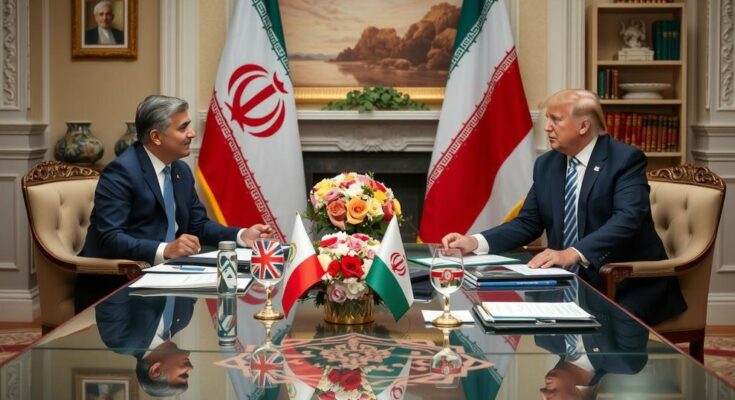President-elect Donald Trump proposed through Oman to initiate high-level talks with Iran focusing on the nuclear agreement and other significant issues. An Iranian source reported that Trump is eager to negotiate a new deal, and may wait only a few months for a response from Tehran. Iranian diplomat Seyyed Hossein Mousavian suggested that direct talks could be on the horizon shortly after Trump takes office.
In a significant diplomatic overture, U.S. President-elect Donald Trump communicated through Oman to propose high-level negotiations with Iran concerning various pressing issues, notably the nuclear agreement. According to sources close to Iranian President Masoud Pezeshkian’s administration, Trump signaled his eagerness to engage with Tehran to explore the potential of establishing a new accord, distinct from the 2015 agreement that he exited in 2018. The Iranian response to this proposal is anticipated within a few months, emphasizing the significance of the negotiations surrounding the nuclear dossier.
An earlier article by Iranian diplomat Seyyed Hossein Mousavian indicated that direct talks between Trump and Iranian leaders were likely to unfold shortly after Trump’s inauguration. He expressed optimism regarding the potential for a successful agreement, while also cautioning that there could be no assurances that the United States would remain committed to any agreement reached.
The diplomatic interactions between the United States and Iran have historically been fraught with tension, especially following the U.S. withdrawal from the Joint Comprehensive Plan of Action (JCPOA) in 2018. This shift in U.S. policy has impacted international relations and regional stability. Trump’s proposed discussions mark a potential thawing of relations and an attempt to renegotiate terms that have been contentious since 2015. Iranian officials have signaled a tentative receptiveness to negotiations, which may reshape future U.S.-Iran dialogue.
In conclusion, President-elect Trump’s initiative to broker high-level discussions with Iran via Oman signifies a potential shift in American foreign policy aimed at addressing the complexities of the nuclear agreement. While the Iranian government may consider the proposal, the outcome remains uncertain, particularly regarding future U.S. adherence to any agreements reached. The unfolding situation warrants close attention due to its implications for regional and global stability.
Original Source: www.iranintl.com




